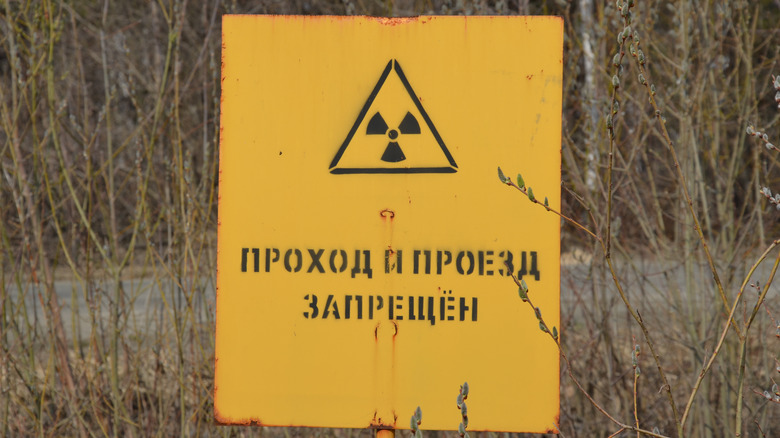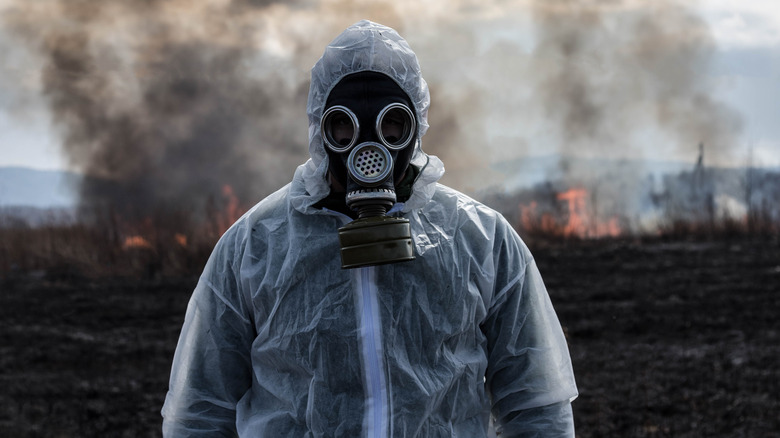This Lake In Russia Is One Of The Most Dangerous Places On Earth
Located in Russia's southern Ural Mountains, Lake Karachay was once an inviting and picturesque spot. Tragically, it is now considered to be one of the most polluted places on the planet (via Atlas Obscura). According to Insider, this is all thanks to Mayak, a nuclear facility that was created in the 1940s to create plutonium. Kept a secret for decades, Lake Karachay was used as a radioactive dumping ground from 1951 to 1953. It was also used to "store hot radioactive material" that was later returned to "underground storage vats" (per World Atlas)
The results, to say the least, were abominable. Mayak's "lack of nuclear technology" ultimately caused "radioactive pollution." Simply put, the facility's operators failed to understand catastrophic events that could occur by using the lake as a waste site. In 1990, Grist reports that after years of "nuclear meltdowns, " the existence of Mayak was finally officially acknowledged. As a result, the severe health issues of the people living in the surrounding area also came to light.
The adverse health effects caused by Lake Karachay
According to Grist, an investigation of Lake Karachay in 1990 found that it was so radioactive that "standing on the shore for an hour" could kill someone. In addition, the citizens living in the Chelyabinsk region near the lake had experienced a "21% increase in cancer, a 25% increase in birth defects, and a 41% increase in leukemia" (via Insider). Several others had fallen ill with radiation sickness due to the nearby Techa River becoming contaminated. Per Atlas Obscura, Lake Karachay began to dry up in the 1960s, resulting in radioactive dust blowing onto "nearby villages."
World Atlas writes that the radioactive fallout would affect 500,000 people. In time, it was decided that the lake would be "filled" with concrete to prevent the "radioactive sediment" from spreading beyond the lake bed. This, however, did not make the pollution disappear, it only masked it. Thus, it's feared that Lake Karachay's radiation could eventually disperse elsewhere. In 2003, Mayak's license was rescinded due to their negligence. Dr. Scott Miller from the University of Utah School of Medicine later described Lake Karachay as being so deadly that it could kill someone who "went there for an afternoon picnic."

